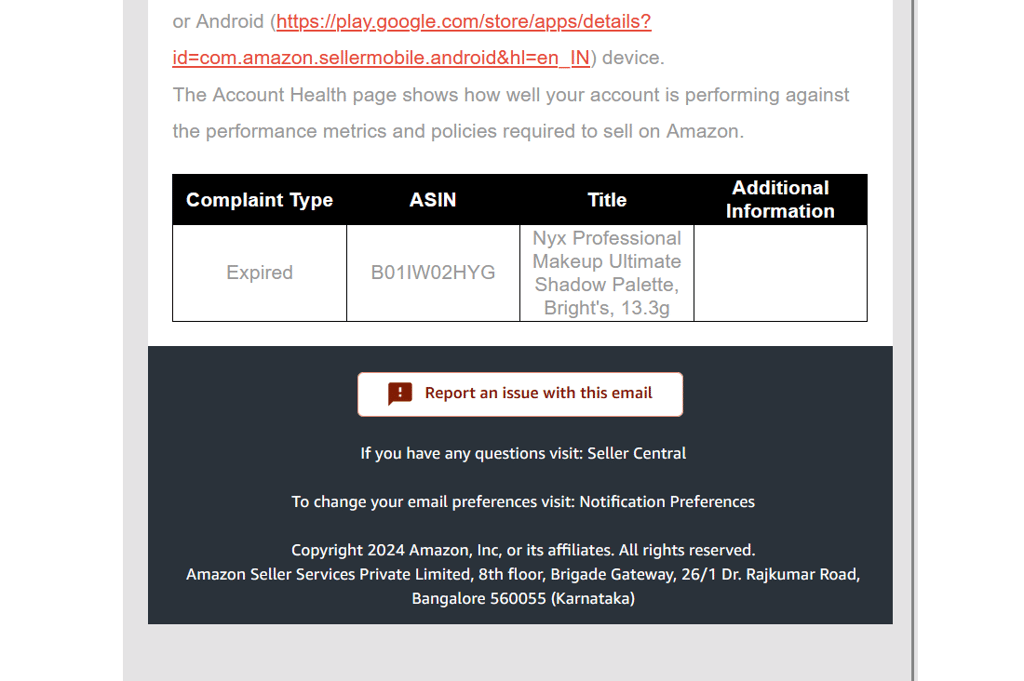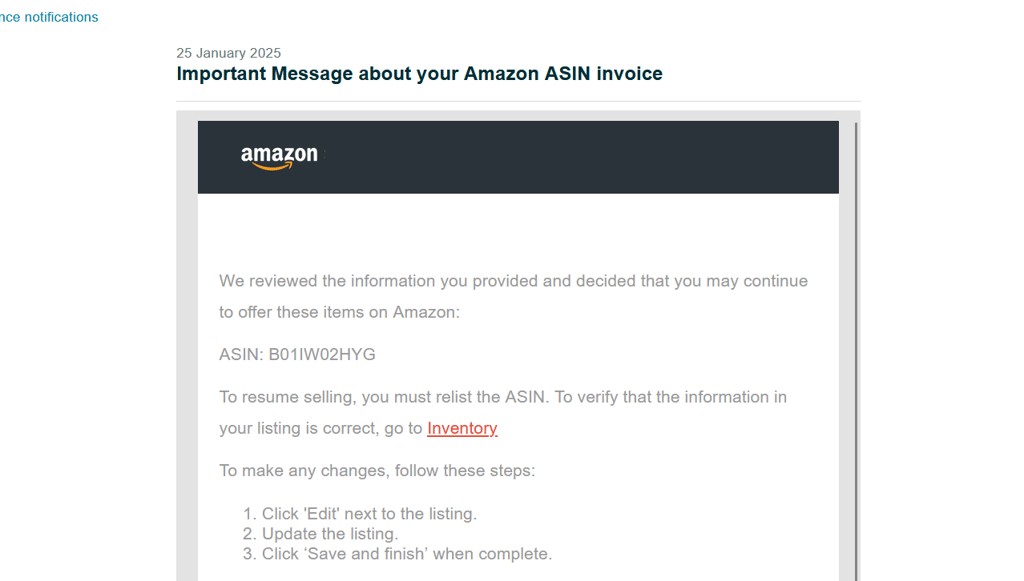How to Write a Plan of Action for Product Condition Complaints on Amazon
Learn the essential steps to draft an effective Plan of Action for resolving product condition complaints on Amazon. Improve your account health and customer trust today
MD MUSTAFEEZ ALAM
1/26/20253 min read
Affiliate Disclosure: Some links in this post may be affiliate links, meaning we may earn a commission if you click and make a purchase, at no extra cost to you. We only recommend products and services we trust and believe add value to our readers.


Product condition complaints on Amazon are one of the most common challenges sellers face. When buyers raise concerns about the condition of a product, such as it being used, damaged, or defective, Amazon expects sellers to respond promptly and effectively. A well-crafted Plan of Action (POA) is essential to resolve these complaints and maintain your account health. In this blog, we’ll guide you through the steps to create a comprehensive and effective POA that aligns with Amazon’s guidelines and keeps your business on track.
What You Will Learn
Understanding product condition complaints and their impact.
The three key elements of a Plan of Action.
A step-by-step template for drafting a POA.
Best practices to ensure approval and maintain compliance.
Tips and tricks to get your POA accepted by Amazon.
FAQ


Understanding Product Condition Complaints
Product condition complaints can arise due to:
Items being listed as "new" but received in a used or damaged state.
Packaging that appears tampered or inadequate.
Missing or incomplete product components.
These complaints impact customer trust and can lead to account deactivation if not addressed promptly.
Key Elements of a Plan of Action
An effective POA should address three key areas:
Root Cause Analysis
Immediate Corrective Actions
Preventive Measures
Let’s explore each in detail.
1. Root Cause Analysis
Identifying the root cause of the complaint is crucial. Investigate issues such as:
Quality control lapses during packaging or dispatch.
Mishandling during shipping.
Miscommunication in product listings.
Example: “Upon investigation, we found that the issue occurred due to inadequate inspection processes during packaging. This led to a damaged item being shipped.”
2. Immediate Corrective Actions
This section demonstrates your commitment to resolving the current issue. Address the buyer’s concern and ensure their satisfaction.
Steps:
Contact the buyer to apologize and offer a replacement, refund, or resolution.
Inspect remaining inventory to identify and remove potentially defective items.
Update affected listings to ensure accuracy.
Example: “We have refunded the buyer and removed all affected inventory for thorough inspection. We also updated the product listing to clarify packaging details.”
3. Preventive Measures
Preventive measures show Amazon your dedication to avoiding future complaints. Focus on long-term improvements in your processes.
Steps:
Implement strict quality control checks at every stage.
Train your team to handle packaging and shipping carefully.
Regularly audit product listings to ensure accurate descriptions.
Example: “We have introduced a three-tier quality inspection process and conducted staff training to ensure compliance with Amazon’s standards. Additionally, we’ve partnered with a reliable shipping carrier to minimize transit damage.”
1. Root Cause Analysis
Identifying the root cause of the complaint is crucial. Investigate issues such as:
Quality control lapses during packaging or dispatch.
Mishandling during shipping.
Miscommunication in product listings.
Example: “Upon investigation, we found that the issue occurred due to inadequate inspection processes during packaging. This led to a damaged item being shipped.”


Template for a Plan of Action
Here’s a structured template to help you draft your POA:
Subject: Plan of Action for Product Condition Complaints
Section 1: Root Cause Analysis
Clearly explain the root cause of the issue.
Section 2: Immediate Corrective Actions
Detail the steps taken to resolve the complaint and assist the buyer.
Section 3: Preventive Measures
Outline specific measures implemented to avoid future occurrences.
Tips and Tricks to Get Your Plan of Action Accepted
Be Specific and Concise: Avoid vague statements. Clearly outline the root cause, actions taken, and preventive measures.
Use Data to Support Your Claims: Include details like the percentage of affected inventory inspected or the number of staff members trained.
Acknowledge the Issue: Show accountability rather than deflecting blame.
Highlight Buyer Satisfaction: Emphasize steps taken to resolve buyer concerns immediately.
Follow Amazon’s Guidelines: Adhere to the specific format Amazon expects in a POA.
Proofread Thoroughly: Ensure your POA is free from grammatical errors and typos to maintain professionalism.
Seek Expert Advice: If unsure, consult professionals to review your POA before submission.
Frequently asked questions
What happens if my Plan of Action is rejected?
Review Amazon’s feedback, address any gaps, and resubmit your POA with detailed corrections.
How long does it take for Amazon to review my POA?
It typically takes 24-48 hours, but it can vary based on the complexity of the issue.
Can I appeal a suspension multiple times?
Yes, as long as you provide updated and relevant information addressing Amazon’s concerns.
Contact Us today
If you’re struggling with product condition complaints or need expert assistance in drafting a Plan of Action, Contact Us today. Our team specializes in Amazon compliance and can help you resolve issues efficiently. Don’t let complaints affect your business—reach out now!
© 2014-2025. All rights reserved.
Amazon Services
Amazon Seller Reinstatement
Amazon Seller Flex Enrollment
Amazon Prime Enrollment
Amazon Brand Approval
Amazon Account Management
Amazon Food & Grocery Approval
Amazon Brand Store
Amazon Account Reinstatement
Performance-Based Suspensions
Policy-Related Suspensions
Linked Account Suspensions
Inauthentic Item Suspension
Account Verification Suspension
Manipulative Practices Suspension
Dropshipping Policy Violation
Expired Product Suspension
Safety & Compliance Suspension
Payment & Fee-Related Suspension
Suspicious Activity Suspension
Fair Pricing Suspension
Customer Service Suspension
Tax Compliance Suspension
